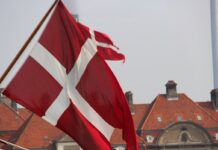Every week, CasinoBeats breaks down the numbers behind some of the industry’s most fascinating stories. Another round of Q1 financial results from Catena, GiG and Bragg feature in this week’s round-up, alongside a rise in Danish gambling activity and tax measures in Brazil.
49%
Publishing its first quarter results, Catena declared revenue from continuing operations of €16m, down 49 per cent year-over-year (Q1 2023: €31.5m).
North America revenue, which makes up 90 per cent of the company’s total revenue from continuing operations during the period, was again affected by market headwinds, dropping by 50 per cent YoY to €14.3m (2023: €28.9m).
Catena cited challenging comparatives, competition intensity and operator marketing budget in sports betting, as well as ongoing brand improvement programs for casino as the reasons for the dip in North America revenue.
Across the quarter, 86 per cent of the total revenue came from cost-per-acquisition agreements, followed by revenue share at 12 per cent and fixed at two per cent.
NDCs from continuing operations declined by 41 per cent YoY to 44,077 (2023: 74,186) during Q1. 81 per cent of NDCs came from CPA deals, while 19 per cent came from revenue share agreements.
Adjusted EBITDA from continuing operations for the quarter decreased by 90 per cent YoY to €1.9m (2023: €18.7m) with a margin of 12 per cent (2023: 59 per cent margin). EBITDA from continuing operations, including items affecting comparability of €1m, totalled €909,000 (2023: €17.9m), corresponding to a margin of six per cent (2023: 57 per cent).
Earnings per share from continuing operations totalled minus €0.03 (2023: €0.15) before dilution and minus €0.03 (2023: €0.11) after dilution.
As of March 31, cash and cash equivalents were €23.4m (2023: €52.4m), outstanding shares totalled 78,773,422 and outstanding warrants were 27,022,940.
Interim CEO Pierre Cadena said: “Operational outcomes during the period were again unsatisfactory, especially in North American sports. Stronger competition, tightened marketing spending by operators, and challenging comparables with Q1 2023 – when online sports betting went live in Ohio and Massachusetts – combined to push revenue and EBITDA lower.
“The legalisation of online sports betting in North Carolina on March 11 came after the Super Bowl but in time for the March Madness college basketball tournament, which provided a positive uplift. Despite being in play for less than one-third of the period, North Carolina was our strongest performing US state in Q1.”
15%
Brazil has introduced the tax framework applied to player prizes and winnings for the well-awaited launch of its regulated market, including betting, lotteries and online gambling.
Earlier this week, the Federal Revenue Service (RFB) of Brazil confirmed its ruling on personal income tax (IRPF) that will be applied to ‘net prizes’ obtained via betting, lotteries and online gambling.
The RFB approved the government’s modality to impose a 15 per cent personal income tax on prizes and winnings above BRL 2824 (around €530).
For net winnings/prizes below BRL 2824, the RFB will exempt the 15 per cent tax charge. The figure is reported to be equivalent to two average monthly wages for Brazilian consumers.
Net prizes of the Bets market will be determined as the difference between the prize amount won and the total amount wagered by the customer.
Replicating the same mechanisms as state lotteries, the 15 per cent tax charge will be applied ‘at source’ by operators when crediting customer winnings.
The framework will apply changes to Brazil’s federal tax laws on the Income Tax on Individuals (IRPF) and the Declaration of Income Tax Withheld at Source (DIRF), having gained authorisation from RFB General Secretary Robinson Sakiyama Barreirinhas.
The tax charge applied to player prizes has been viewed as a point of conflict in the pending launch of the Bets market.
The measure was imposed by President Lula da Silva upon signing Bill No. 3,626/2023 into law, authorising the legislative framework for Brazil to launch its federal sports betting and online gambling marketplace.
€23.8m
For Q1 2024, Bragg Gaming Group declared a 4.2 per cent increase in revenue in comparison to the same period last year, reaching €23.8m (Q1 2023: €22.9m).
CEO Matevž Mazij noted that the YoY increase was attributed to organic growth from its current client base, the addition of new customers in multiple markets, as well as “impressive results” from its in-house Wild Streak Gaming casino games studio.
However, as previously mentioned, the group’s gross profit and adjusted EBITDA declined in comparison to the previous year.
Gross profit dropped by 2.8 per cent to €11.9m (2023: €12.2m) with a margin of 49.9 per cent (2023: 53.5 per cent), while adjusted EBITDA fell by 12.4 per cent to €3.4m (2023: €3.9m) with a margin of 14.3 per cent (2023: 17 per cent).
Mazij commented: “Although gross profit and adjusted EBITDA saw modest decreases in the first quarter, stemming from the extension and renegotiation of our agreement with Entain Plc to provide our PAM platform to BetCity.nl through 2025, we maintain a strong belief in our ability to achieve long-term growth and profitability.
“Our proprietary and exclusive third-party content continues to gain ground with an increasing number of top-tier operators globally, and we introduced a total of 19 new exclusive titles worldwide in the first quarter of 2024.
“Additionally, as we continue to make encouraging progress on our strategic alternatives review process, it’s important to emphasise that we are operating the business as usual and remain laser-focused on capitalising on growth opportunities.”
4.6%
Denmark’s Gambling Authority, Spillemyndigheden, has reported a year-over-year GGR improvement of over four per cent across the country’s gambling market for March.
Publishing data for the month, Spillemyndigheden reported that the total GGR came in at DKK 627m (€84.06m), up 4.6 per cent in comparison to March 2023’s DKK 599m (€80.2m).
This figure also represents consecutive months of growth for Denmark’s gaming ecosystem, rising by 6.63 per cent from February 2024’s DKK 588m (€78.83m).
March GGR was driven by growth across online casinos, land-based casinos and gaming machines, but the nation’s betting segment did decline slightly in comparison to the same month in 2023.
Looking at GGR share, online casinos took the majority with a 49.41 per cent share, followed by betting with 29.01 per cent, gaming machines with 16.95 per cent and land-based casinos with 4.5 per cent.
Online casino GGR in March came in at DKK 310m, an uptick of over 20 per cent YoY (March 2023: DKK 257m). Of the vertical’s GGR, 76.4 per cent of GGR came from slots, followed by 6.74 per cent from roulette and 6.57 per cent from blackjack.
As the only vertical to witness a decline, betting GGR in March fell by 14.8 per cent to DKK 183m (March 2023: DKK 214m). For this segment, 62.53 per cent of GGR came from mobile, with land-based betting contributing 23.23 per cent and computers contributing 14.24 per cent.
Land-based casino’s GGR in March rose by 12 per cent to DKK 28m (March 2023: DKK 25m) with an average daily GGR during the month of DKK 900,627.
Gaming machines GGR also increased, reaching DKK 106m to gain a 2.91 per cent advantage on the previous year’s DKK 103m. The segment’s average daily GGR came in at DKK 3,244,115.
As for the authority’s self-exclusion programme ROFUS, Spillemyndigheden noted that the number of people registered in March was 50,070, with 32,261 permanently registered.
€379.3m
Super Group declared a 12 per cent increase YoY in revenue to €379.3m (Q1 2023: €338.5m) as it revealed its financial results for Q1.
The operator stated that revenue improvements occurred following “growth from Africa and North America (predominantly Canada) markets partially offset by declines from the Middle East and Asia-Pacific market”.
Per region, North America alongside Africa and Middle East tied at 37 per cent of the total revenue share during Q1, followed by Europe at 15 per cent, Asia-Pacific at nine per cent and South/Latin America at two per cent.
Excluding US operations, total revenue for the quarter stood at €374m, up 13 per cent YoY or 17 per cent in constant currency.
Per brand, Betway reported €222m in revenue during the quarter (2023: €198.3m), while Spin had €157.3m in revenue (2023: €140.2m).
Per vertical, online casino revenue stood at €292.2m (2023: €243m), sports betting revenue was €76.9m (2023: €81.5m), brand licensing revenue was €5.9m (2023: €8.8m) and other revenue was €4.3m (2023: €5.24m).
Super Group reported profit for the period was €41m (2023: €1.9m loss), which included “a gain on disposal of the B2B division of Digital Gaming Corporation Limited of €40.1m” in addition to “a non-cash charge of €13.1m related to the increase in fair value of option liability”.
Adjusted EBITDA improved by 29 per cent YoY to €46.5m (2023: €36.1m). Excluding US business, adjusted EBITDA stood at €69m, up 29 per cent YoY (2023: €53m) with a margin of 18 per cent.
While active in nine states, Super Group stated that it is still assessing its US operations, with the region reporting an adjusted EBITDA loss of €22m (2023: €16.5m loss).
Monthly active customers for the quarter rose by 33 per cent to 4.7 million in comparison to 3.5 million during the same period last year.
Menashe commented: “We’ve had a phenomenal start to the year, continuing our momentum from a strong end to 2023.
“This robust performance has been delivered by our global team’s ongoing focus and investment into core markets that are yielding strong returns, providing us with a solid foundation for the remainder of the year.”
€36.2m
Publishing record Q1 results, GiG announced all-time high revenues of €36.2m, up 28 per cent in comparison to the same period last year (Q1 2023: €28.4m).
Media revenues were positive, but Platform & Sportsbook fell against previous year comparisons, although underlying Software-as-a-Service revenue did increase.
Marketing expenses grew by 32 per cent year-over-year to €7.5m (2023: €5.7m), corresponding to 21 per cent of revenues (2023: 20 per cent). Other operating expenses increased by 45 per cent to €15.5m (2023: €10.7m).
Adjusted EBITDA for the company rose by eight per cent YoY to €12.6m (2023: €11.7m) with a margin of 34.8 per cent (2023: 41.1 per cent).
At the end of Q1, depreciation and amortisation amounted to €7.3m (2023: €5.6m), of which €3.2m (2023: €1.1m) was related to the acquisitions of AskGamblers, KafeRocks and other acquired affiliate assets.
As of March 31, GiG reported a profit from continuing operations of €3.7m (2023: €4m) and a positive cash flow from operations of €10.3m, (2023: €13.2m) with a cash balance of €10.4m (2023: €10.7m).
Commenting on the Q1 performance, GiG Chair Petter Nylander said: “I am pleased to present to you our first quarterly report for the year 2024, outlining the significant strides and promising developments within our company.
“Since 2019, our GiG Media business has been on an upward trajectory, marked by robust cash flow and increased earnings diversity. The acquisition of AskGamblers in February 2023 has proven fruitful, driving solid revenue growth and First Time Depositors.
“Moreover, the successful integration of KaFe Rocks in December 2023 has further diversified our business portfolio, contributing positively to our EBITDA margin.”











